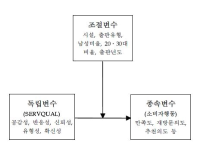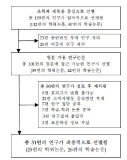
[Purpose] The purpose of this research is to empirically analyze the relationship between self-determination and relationship commitment, customer orientation, service quality, and relation continuity intention of fitness center customers through structural equation model analysis. [Methods] For this purpose, this study set 242 members at the five fitness centers located in Seoul as the research subjects. In an effort to verify the proposed structural model, this study used IBM SPSSWIN Ver. 21.0 and AMOS 18.0. [Results] As a result, first, autonomy had a positive effect on relationship commitment. Second, competence didn’t had a positive effect on relationship commitment. Third, relatedness had a positive effect on relationship commitment. Fourth, relationship commitment had a positive effect on customer orientation. Fifth, relationship commitment had a positive effect on service quality. Sixth, customer orientation had a positive effect on relation continuity intention. Seventh, service quality had a positive effect on relation continuity intention


Purpose The purpose of this study was to empirically analyze the relationship between a commercial sports centers employees’ empathy, job satisfaction, customer orientation, service quality & organization loyalty through structural equation model analysis. Methods For this purpose, this study set 205 employees’ at the eleven commercial sports centers located in Seoul as the research subjects. In an effort to verify the proposed structural model, this study used IBM SPSSWIN Ver. 21.0 and AMOS 18.0. Results First, cognitive empathy had a positive effect on job satisfaction. Second, emotional empathy had a positive effect on job satisfaction. Third, communication empathy had a positive effect on job satisfaction. Fourth, job satisfaction had a positive effect on customer orientation. Fifth, job satisfaction had a positive effect on service quality. Sixth, job satisfaction had a positive effect on organization loyalty. Seventh, customer orientation didn’t had a positive effect on organization loyalty. eighth, service quality had a positive effect on organization loyalty.


KThis study aims to positively analyze relationship between internal communication, involvement, organizational identification, customer orientation, and relation continuity intention of workers at commercial sports center. For this end, we have conducted survey for 195 workers working at 10 commercial sports centers in the metropolitan area. Sampling method was Convenience Sampling Mode, and questionnaire has been structured to be self-administerd type. SPSSWIN Ver. 21.0 and AMOS 18.0 have been used for data processing. As a result, internal communication has positive influence on the organizational identification at first. Second, involvement has positive influence on the organizational identification as well. Third, organizational identification has positive influence on the customer orientation. Fourth, customer orientation has positive influence on the relation continuity intention. Fifth, internal communication has no positive influence on the relation continuity intention. Sixth, involvement has no positive influence on the relation continuity intention.


Purpose The purpose of this study is to empirically inquire into the relationship between a indoor swimming pools employee’s group cohesiveness, swimming pool identification & communication and job satisfaction, customer orientation, long-term orientation, and positive word of mouth through structural equation model analysis. Methods For this purpose, For this purpose, the survey targeted 221 workers working at 10 swimming pools in Seoul for over three months. For sampling method, convenience sampling method was used, while the questionnaire was self-administered. In an effort to verify the proposed structural model, this study used IBM SPSSWIN Ver. 21.0 and AMOS 18.0. Results First, group cohesiveness, swimming pool identification & communication has positive influence on the job satisfaction. Second, job satisfaction has positive influence on the customer orientation. Third, job satisfaction has positive influence on the positive long-term orientation. Fourth, customer orientation has positive influence on the positive word of mouth. Fifth, long-term orientation has positive influence on the positive word of mouth.


Purpose The purpose of this study is to empirically inquire into the relationship between a commercial sports center employee's humor orientation & customer orientation and employees' trust, service quality, sports center relationship quality and relationship retention through structural equation model analysis. Methods For this purpose, the survey targeted 224 adult men and women who have used any one of the three commercial sports centers in Chungcheong for over three months. For sampling method, convenience sampling method was used, while the questionnaire was self-administered. In an effort to verify the proposed structural model, this study used IBM SPSSWIN Ver. 21.0 and AMOS 18.0. Results First, humor orientation was found to have a positive influence on employees' trust. Second, customer orientation was found to have a positive influence on employees' trust. Third, employees' trust was found to have a positive influence on service quality. Fourth, employees' trust was found not to have a positive influence on sports center relationship quality. Fifth, employees' trust was also found not to have a positive influence on relationship retention. Sixth, service quality was found to have a positive influence on sports center relationship quality. Seventh, service quality was also found not to have a positive influence on relationship retention.


The current study aimed to investigate the impact of SERVQUAL on sport consumer behaviors using meta-analytic techniques. Findings from 25 dissertations and 26 journal articles were used to test of a model of the SERVQUAL on various sport consumer behaviors via the comprehensive meta analysis (CMA) program. Results showed that SERVQUAL has a large effect on sport consumer behaviors, with a fixed effect size of .383. In terms of the relative importance of the SERVQUAL sub-factors, sport consumer behaviors were influenced most by empathy, followed by reliability and tangibles. In predicting sport consumer behaviors, SERVQUAL had a most positive effect on, in order of, loyalty, customer orientation, and commitment. Results also found significant moderating evidence for sport facility types, publication types, publication year, the ratio of male and respondents' age.





